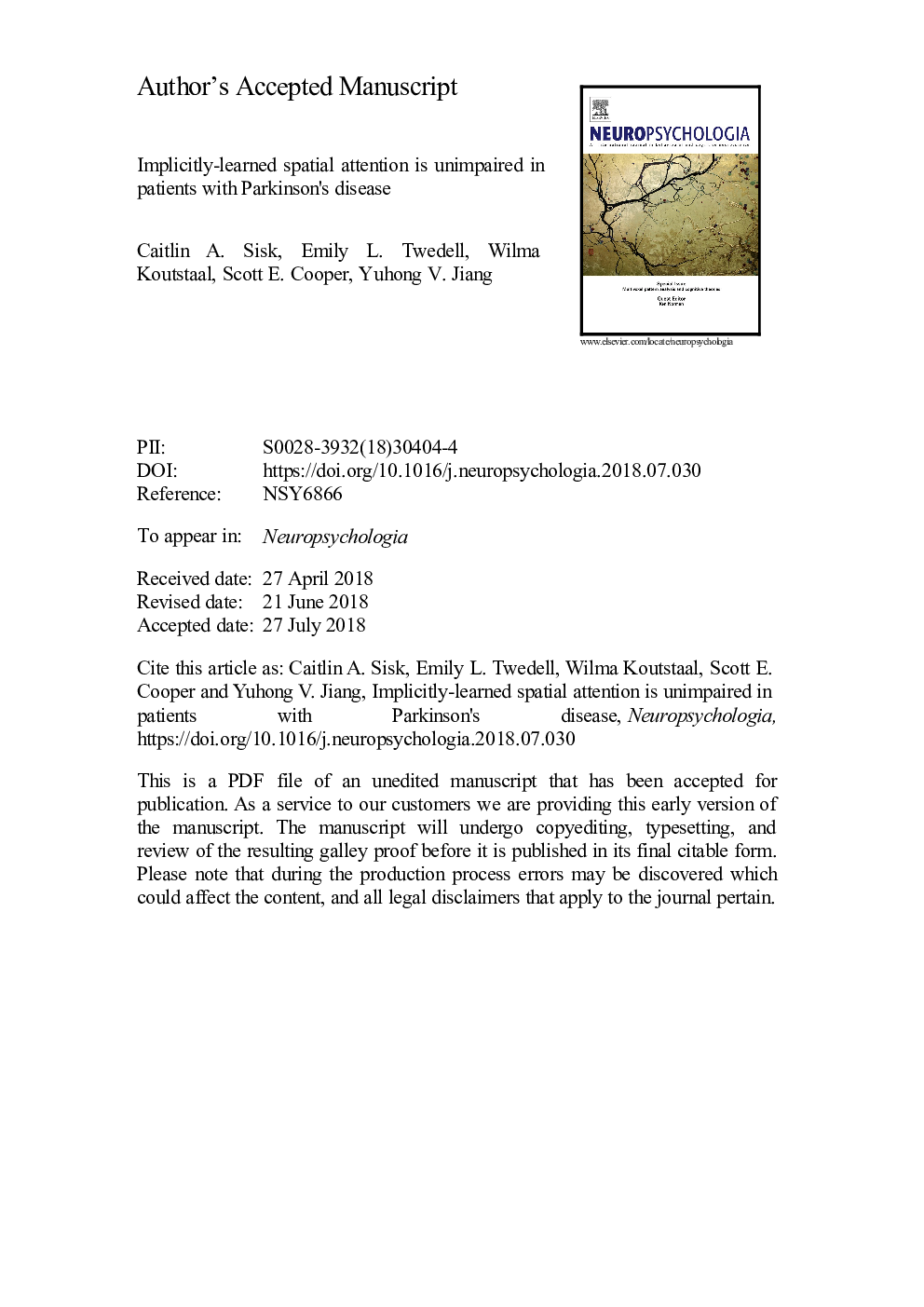| کد مقاله | کد نشریه | سال انتشار | مقاله انگلیسی | نسخه تمام متن |
|---|---|---|---|---|
| 7317075 | 1475537 | 2018 | 42 صفحه PDF | دانلود رایگان |
عنوان انگلیسی مقاله ISI
Implicitly-learned spatial attention is unimpaired in patients with Parkinson's disease
ترجمه فارسی عنوان
توجه فضایی ناخواسته آموخته شده در بیماران مبتلا به بیماری پارکینسون بدون علامت است
دانلود مقاله + سفارش ترجمه
دانلود مقاله ISI انگلیسی
رایگان برای ایرانیان
کلمات کلیدی
موضوعات مرتبط
علوم زیستی و بیوفناوری
علم عصب شناسی
علوم اعصاب رفتاری
چکیده انگلیسی
Extensive research has examined how current goals influence spatial attention. Yet the allocation of spatial attention is also guided by previous experience, which may induce consistent spatial preferences when a visual search target is frequently found in one region of space. Here, we examined the role of the dopaminergic system in acquiring and maintaining location probability learning. We tested Parkinson's patients and age-matched controls in a difficult visual search task in two sessions. In Session 1, unbeknownst to the participants, the target appeared most often in one quadrant in an early, training phase of the experiment. The target was randomly located in a later, testing phase. Both Parkinson's patients and controls acquired an attentional preference toward the high-probability quadrant during training that persisted in the testing phase. Learning yielded a large reduction in response time (345â¯ms) in Parkinson's patients, and this effect was highly significant. In Session 2, administered several days later, the target's high-probability quadrant changed. Both groups acquired a new preference for Session 2's high-probability quadrant, demonstrating reversal learning. These findings contrast with previously observed deficits in PD in acquiring probabilistic learning and contextual cueing. This result suggests that not all habit-like behaviors depend on the basal ganglia and the dopaminergic system. Instead, preservation of location probability learning may compensate for other types of attentional deficits in PD.
ناشر
Database: Elsevier - ScienceDirect (ساینس دایرکت)
Journal: Neuropsychologia - Volume 119, October 2018, Pages 34-44
Journal: Neuropsychologia - Volume 119, October 2018, Pages 34-44
نویسندگان
Caitlin A. Sisk, Emily L. Twedell, Wilma Koutstaal, Scott E. Cooper, Yuhong V. Jiang,
